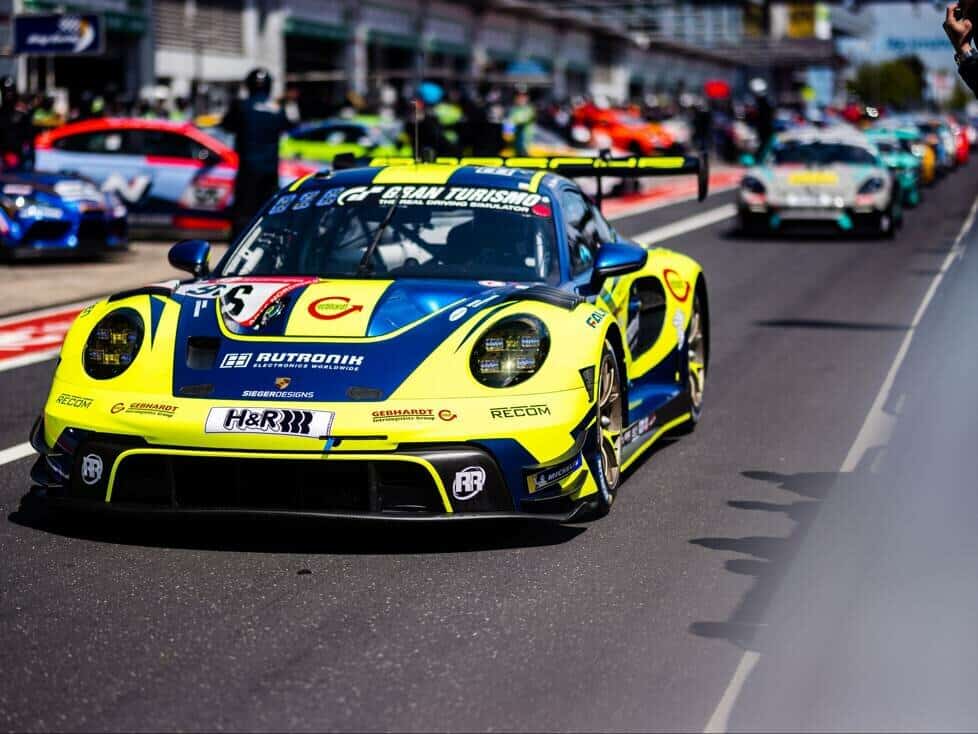Ex-Rutronik team principal Fabian Plentz explains why the testing restriction applies in the GTWCE and what would be important if it were introduced in the DTM
Due to the rising costs, many – above all Norbert Haug – have recently called for a test ban in the DTM. However, the ADAC was skeptical, as the GT3 cars are used in numerous other series – and monitoring would therefore hardly be feasible. It is interesting to note, however, that the GT3 series GT World Challenge Europe (GTWCE) relies on a restrictive testing ban
And apparently with success. “There is definitely less testing,” says Fabian Plentz, who switched from the ADAC GT Masters to Stephane Ratel’s series with his Rutronik team in 2023, “We didn’t have a single day of testing during the year on tracks where we raced.”
But how does Ratel’s SRO Motorsports Group manage to prevent the test drives before the race weekends, which consume around a third of the DTM teams’ annual budgets?
This is what Ratel’s ban on testing during the season looks like
The French GT3 inventor relies on the following regulation: Private test drives are permitted for the participating teams up to eight days before the start of the season. After that, they are only permitted on race tracks on which the race has already taken place in the respective season or is not run at all. Official test drives such as those before the 24 Hours of Spa-Francorchamps are an exception.
“Nobody in the world can control a test ban 100 percent, unless we were to work with manufacturer control units that are withdrawn from us,” says Plentz, who has handed over the team principal role at Rutronik Racing to Klaus Graf and now operates more in the background. However, this is not possible in the customer racing environment, as the cars are the property of the teams.
“Someone would see that in this digital world “
Ratel, however, relies on agreements with the racetracks. “If they see a conspicuous car there, they may report it – and then it will be investigated,” says Plentz. “So it’s not the case that the SRO always has to assign someone to this.”
Apart from that, he is convinced that infringements would be discovered anyway. “In today’s digital world, someone would see it, take a photo and report it. So that would help. And if everyone sticks to it to some extent, because it’s also in their intrinsic motivation, then it can be regulated,” he says, pointing out that lower costs are also in the interest of the teams.
Plentz: Why a test ban does not solve all problems
However, he fears that a test ban would not solve all the problems. “There is a big but: money is not only spent by physically driving the car. I can also go on a seven-post rig with my car,” he says, referring to a driving dynamics test bench such as the one owned by KW Automotive.
“One day can easily cost me 7,000 to 10,000 euros. And if I do it for three or four days, then I also have data and results that I can use for my development and performance. In other words, you’ll still have the budget versus low budget component, even if it shifts towards off-track. “
“Teams must agree on regulations with ADAC “
Nevertheless, Plentz is certain that a test restriction would be an important step. However, the teams would have to be brought on board. “What Stephane does really well is that there are team committees, and there have been discussions with each team in which feedback was obtained from each individual,” he says.
“They sit together and discuss the issues critically – and try to define a path for the future together. That’s the only way it can work, because if only one person makes a commitment, then you can forget it. It has to come from everyone.”
This also applies to the DTM. “If the ADAC said tomorrow that we’re going to do it now, that would be difficult,” said Plentz. “The teams have to agree on a regulation with the ADAC. If everyone signs up, then you can definitely find a rule that goes against the cost trend. “





